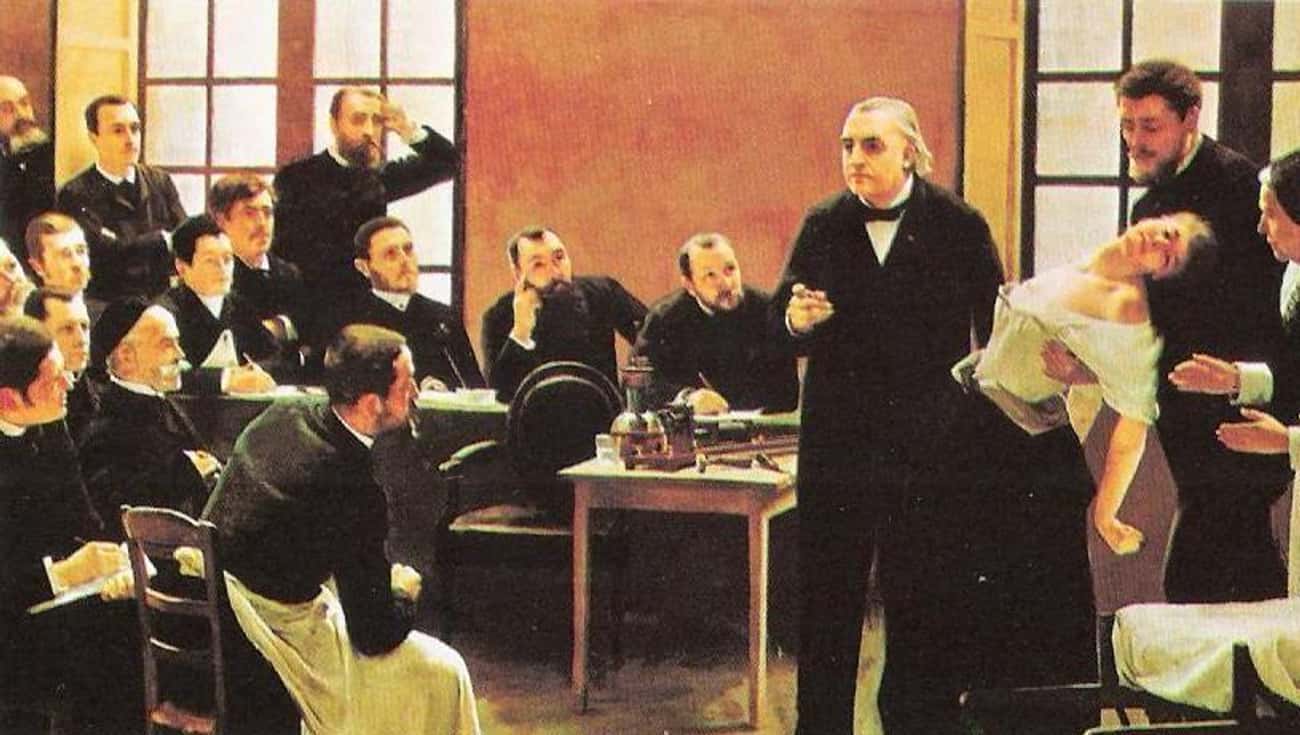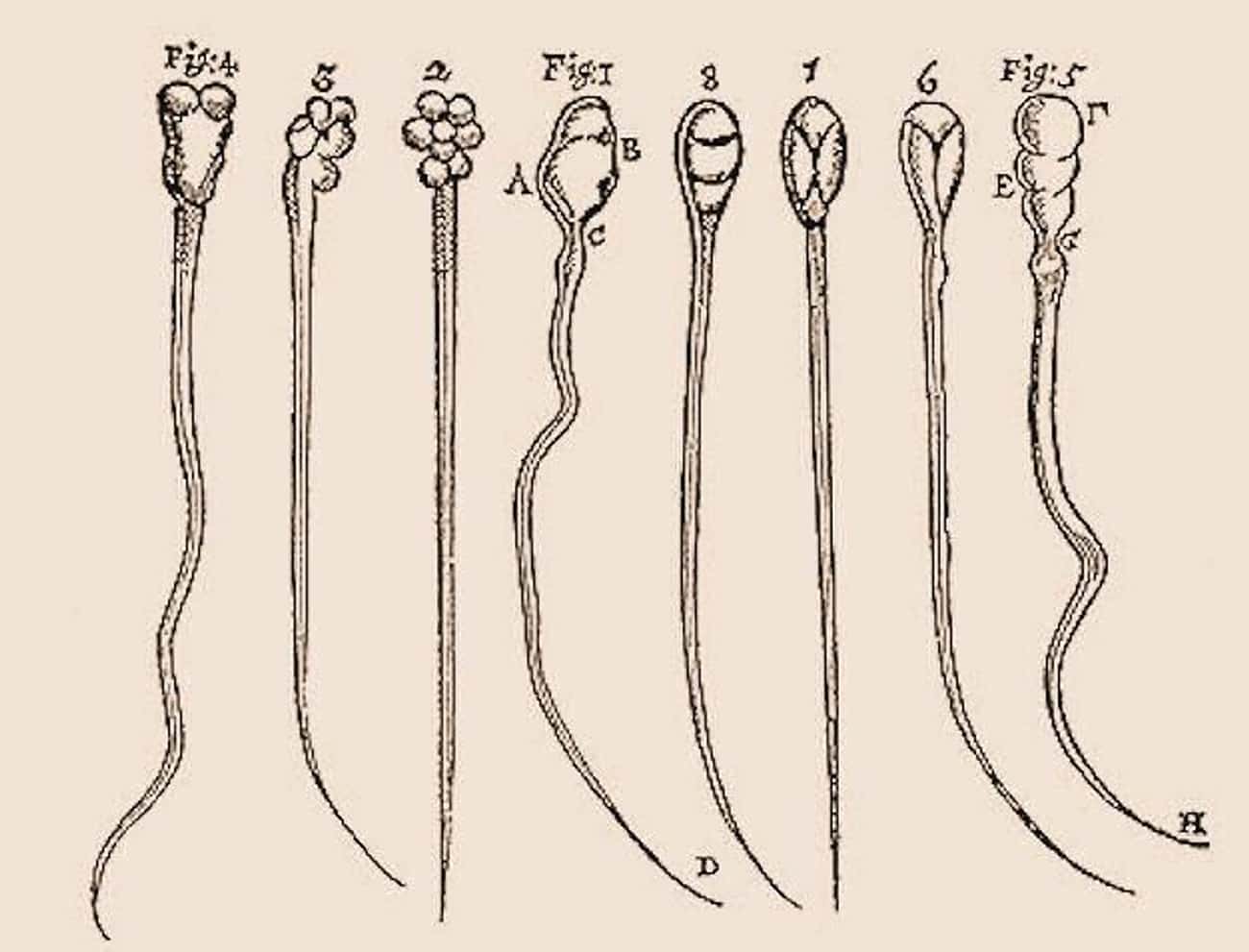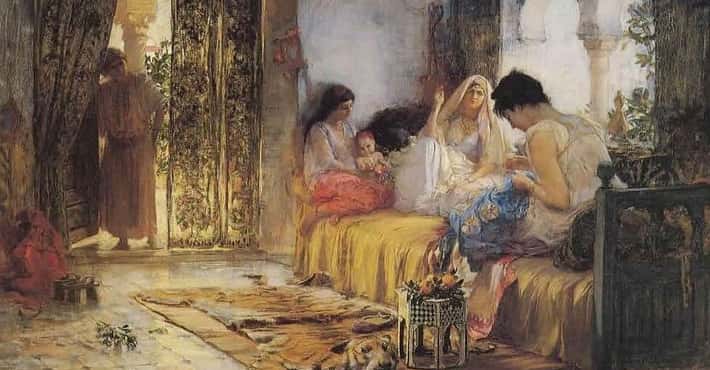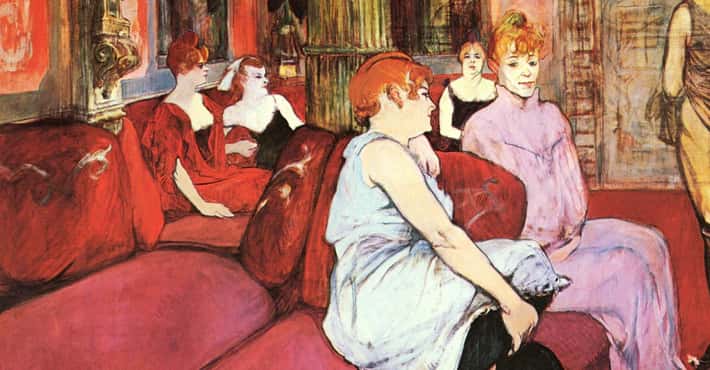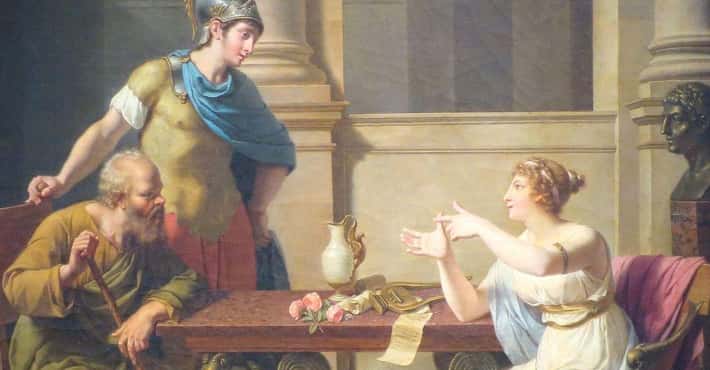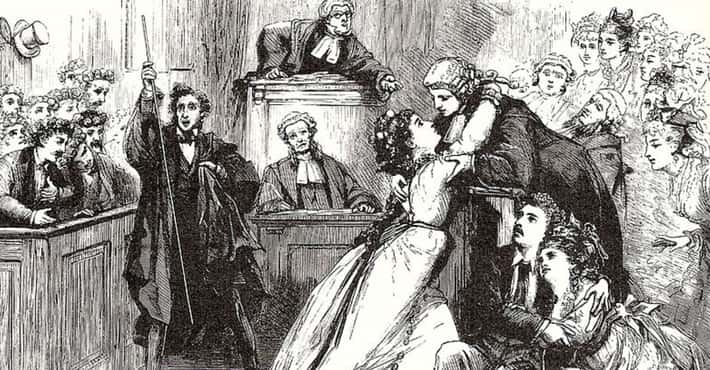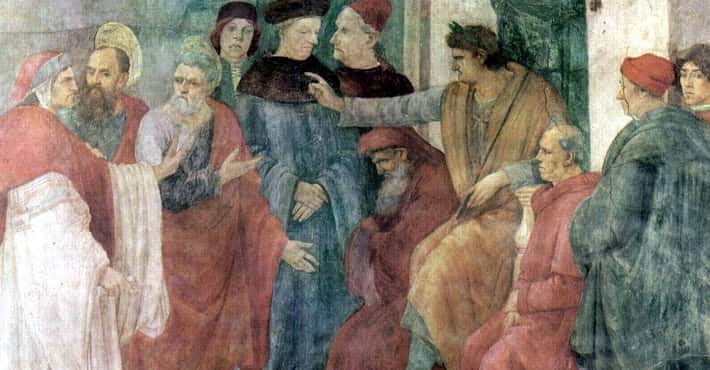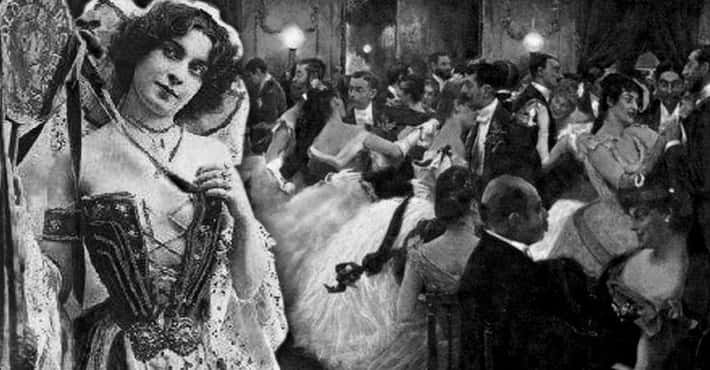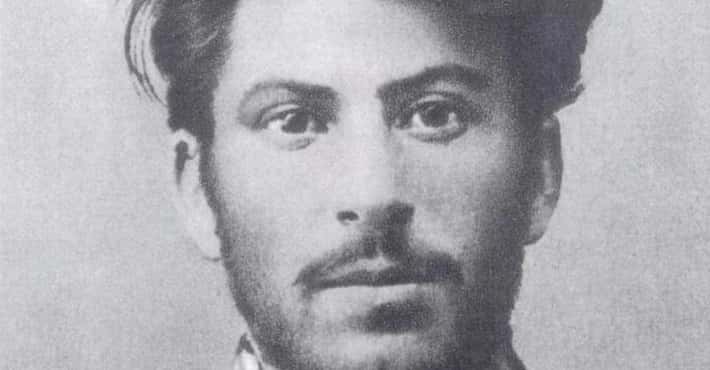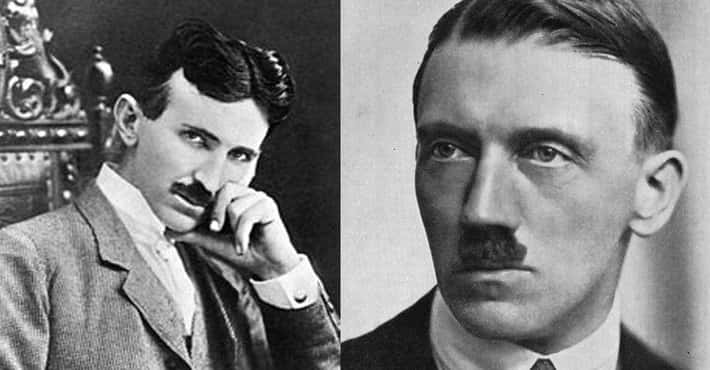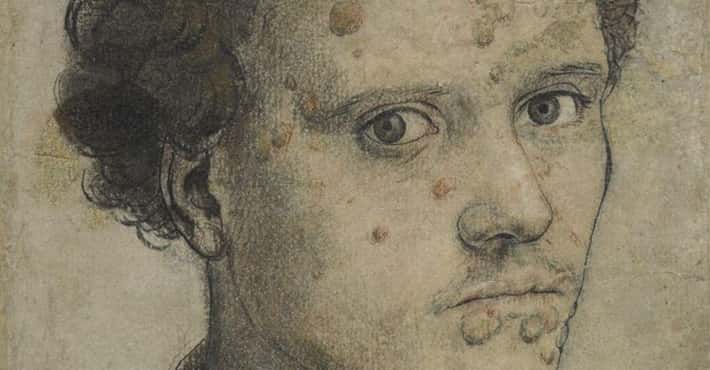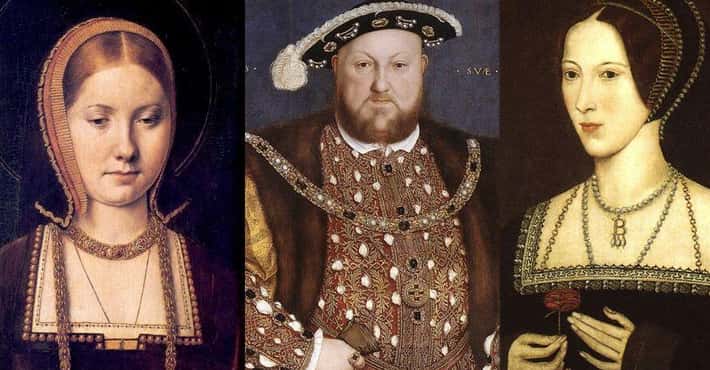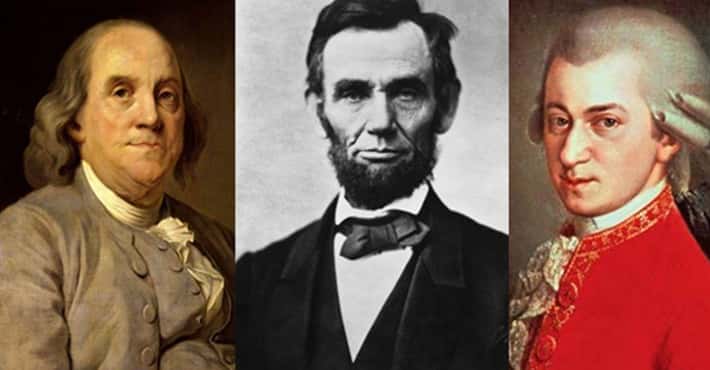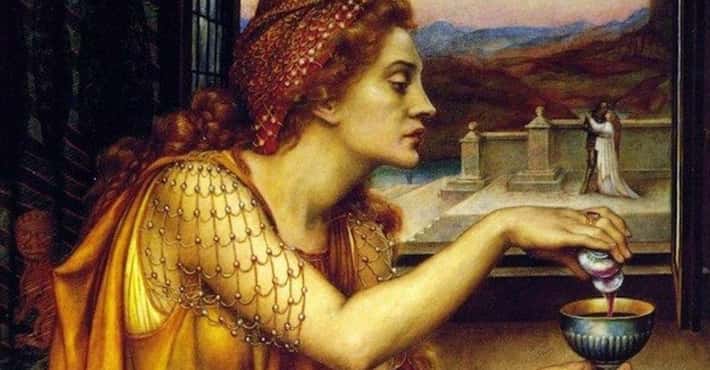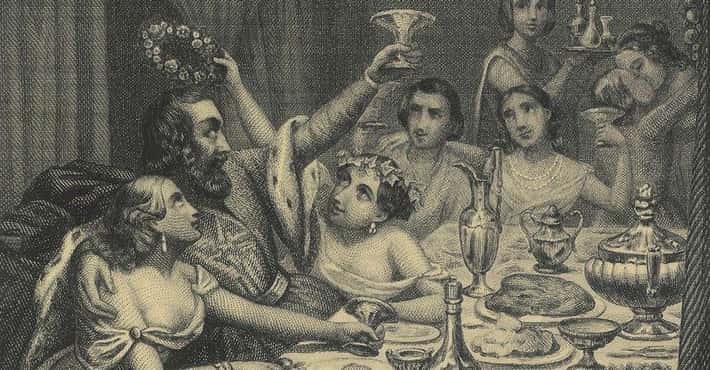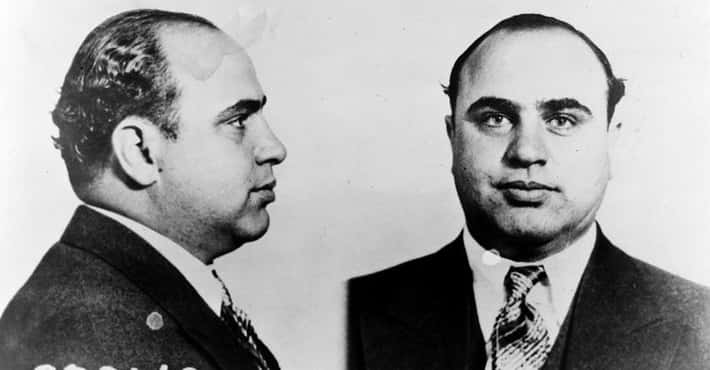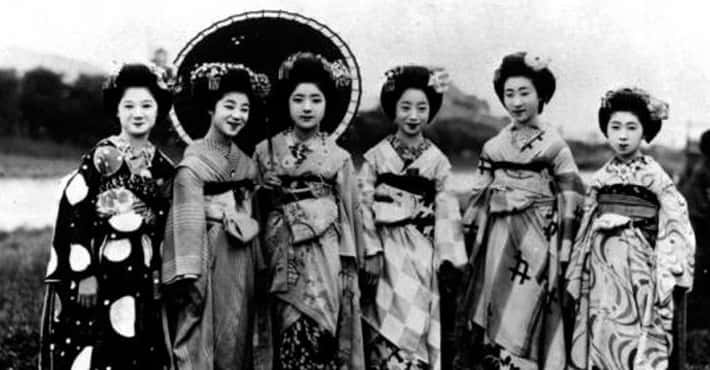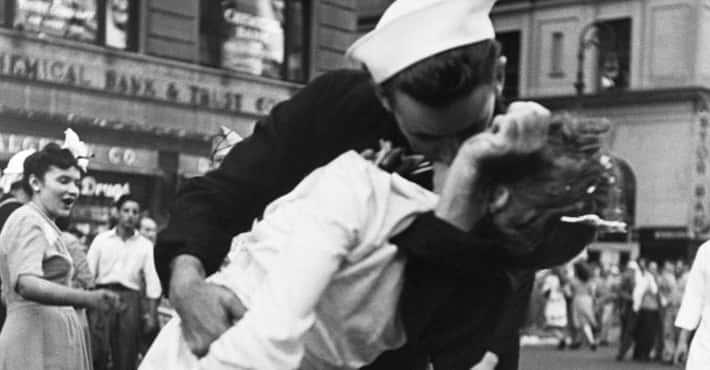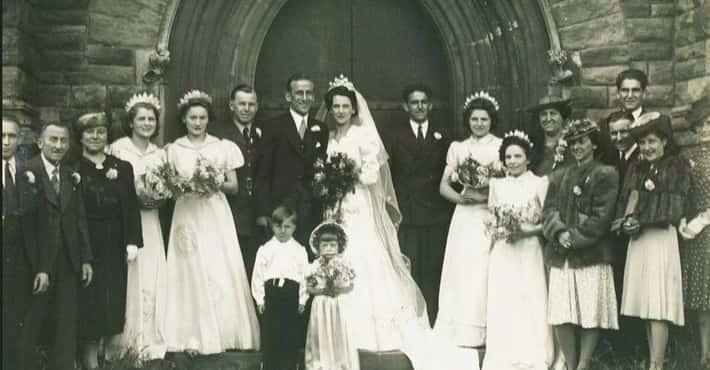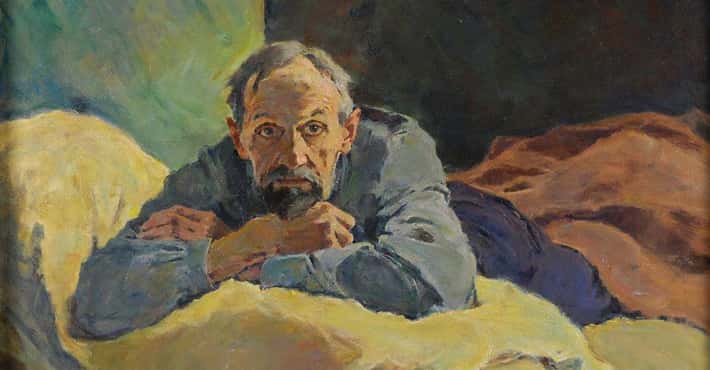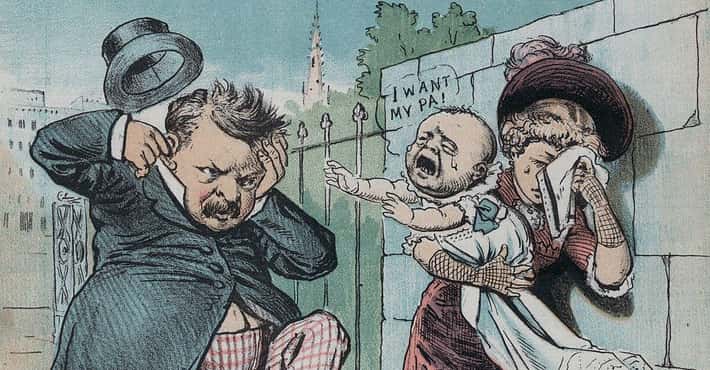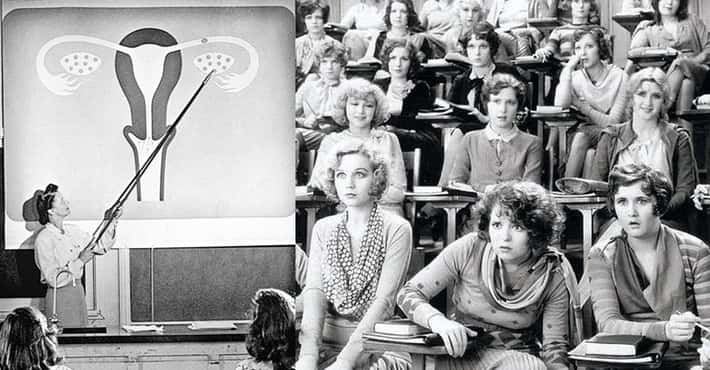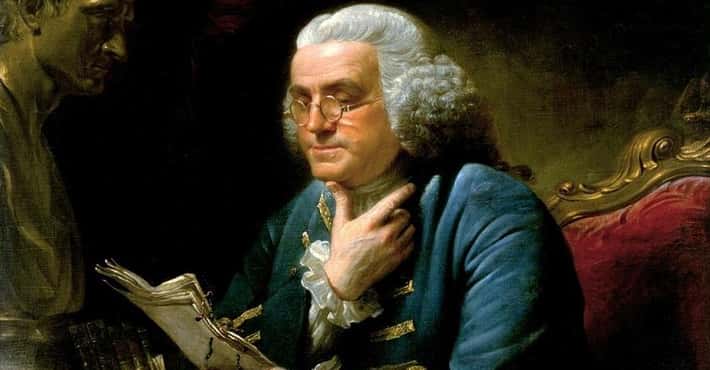The Many Times Sexual Intercourse Altered The Course Of History
Vibrators Originated As A Cure For Female 'Hysteria'
Photo: André Brouillet / Wikimedia Commons / Public DomainA man’s tool of control ultimately became a woman’s tool of pleasure throughout history. Before the 20th century, doctors believed women were incapable of experiencing arousal. When women came in complaining of fantasies, anxiety, nervousness, and wetness between their legs, doctors diagnosed this as “hysteria.” The treatment for hysteria? A massaging of the genitals until a woman experienced a “paroxysm,” relieving her symptoms of hysteria.
The doctors experienced chronic hand pain from treating so many hysterical women. Later in history, an alternative came along in the form of the electromechanical vibrator.
Antonie van Leeuwenhoek Discovered Sperm Cells Using His Own Fluids
Photo: Antonie van Leeuwenhoek / Wikimedia Commons / Public DomainMicroscopes fascinated 17th century scientist Antonie van Leeuwenhoek, which led to his discovery of bacteria. He examined anything he could get his hands on — and that included his own bodily fluids. When he exhausted blood, saliva, tears, and spit, he sought out the last liquid on his checklist: "man juice." He collected various samples, and he discovered under the microscope the fluids contained living cells, which he called “animalcules.”
The discovery made by van Leeuwenhoek changed the way scientists understood reproduction. Before, they only knew the part of the process involving an egg; but after, they had a more complete picture of the union of egg and sperm. Though van Leeuwenhoek was way ahead of his time in the fields of microbiology and reproductive biology, the credit for the seed of the idea goes, in part, to van Leeuwenhoek’s own seed.
Interracial Marriage Was Legalized Thanks To Premarital Intercourse And A Brave Couple
Photo: John T. Bledsoe / Wikimedia Commons / No known copyright restrictionsWhen two young adults fall in love, sometimes complications arise with an unexpected pregnancy. When the year is 1958, the place is Virginia, and the couple is interracial, the needle flies off the complication meter and up into the stratosphere. Such was the case for Richard Loving and Mildred Jeter, when Mildred became pregnant and the couple decided to make things official.
Interracial marriage was illegal in Virginia, so the couple married in nearby Washington, DC. When they returned, an anonymous tip drove police into the couple’s bedroom, where they arrested the pair. Their case made it all the way to the Supreme Court, which finally struck down the law against interracial marriage in 1967. Almost 50 years later, the Loving case, among others, was used in 2015 as a precedent to help end laws against same-gender marriage.
Christopher Columbus Possibly Brought Syphilis Back From The Americas
Photo: Unknown/Library of Congress / Wikimedia Commons / Public DomainAccording to a study published in 2008, scientists theorize the introduction of syphilis to Europe came from Christopher Columbus’s expedition. When Columbus and his men returned home, they might have brought syphilis back with them.
More recent analysis of bones at Pompeii, however, show evidence of congenital syphilis — calling into question the idea that Columbus and his crew brought the ailment to the European continent.
Kitty Fisher Used Her Body To Become History's First Celebrity
Photo: Joshua Reynolds / Wikimedia Commons / Public DomainKitty Fisher was a courtesan in 18th century England who gained notoriety thanks to her famous clientele, including the Earl of Coventry. She was the world’s first modern celebrity, someone only famous for being famous. Fisher's antics were only gossiped about around town, initially. But as her notoriety grew, newspapers latched onto Fisher's exploits and began to report about her life, daily happenings, and style.
Fisher inspired songs and artwork, sold stories to the press, sat for portraits with famous artists of the day, and exploited the media to maximize her fame.
Henry VIII Helped Start A New Religion So He Could Marry His Mistress
Photo: George Cruikshank / Wikimedia Commons / Public DomainAfter the death of his brother in 1502, Henry VIII became the next king and married his sibling's widow, Catherine of Aragon. Years later, with no male heir and a younger and secretly pregnant mistress, the Catholic Henry sought out an annulment from the Pope.
When the Pope said no, Henry found a solution: he helped create his own religion, which allowed divorce. Though the Reformation was already a growing cause, Henry's support bought it to life. Thus, the Church of England was born.
Henry married Anne Boleyn, and the pair had a daughter (the eventual Queen Elizabeth I) — but Henry once again began scheming to marry someone else.
Intercourse (Or Lack Thereof) Spawned Christianity
Photo: Gerard van Honthorst / Wikimedia Commons / Public DomainMany know the story of the virgin birth of Jesus Christ, and key detail of Christ's birth revolves around intercourse. According to Mary’s story in the bible, the implication of a sexless pregnancy is what spawned the Christ in Christianity. Regardless of whether Mary was actually a virgin, this detail about her love life created the religion.
Either way, whether God or man impregnated Mary, whether intercourse was deceptively present or miraculously absent, this one moment birthed the most popular religion in the world.
A Courtesan Named Aspasia Inspired Socrates And Pericles
Photo: Nicolas-André Monsiau / Wikimedia Commons / Public DomainAspasia was one of the most famous women in ancient Athens. As a courtesan, she caught the eye of famous Greek general Pericles. Pericles took to her intellect, outspokenness, and beauty, seeking out her guidance in his professional endeavors — despite most of Athens feeling threatened by her. Aspasia was denigrated by Pericles's enemies, but she did have one other famous fan: Socrates.
Socrates and Aspasia encouraged and influenced each other, with Socrates even claiming that he learned “the art of eloquence” from Aspasia. She was further credited with other intellectual feats, including the writing of Pericles's famous funeral oration during the Peloponnesian War.
Genghis Khan Controlled His Horde By Making Babies
Photo: peteranta / Pixabay / Free for commercial useIn the early 13th century, Genghis Khan united the nomadic tribes of Mongolia together into one militaristic force. In the process, he conquered massive portions of the globe, with his empire stretching to modern Poland, Vietnam, and Syria. As a result, Khan is considered one of the most feared conquerors of all time.
When Khan wasn’t making enemies, he was making babies. Studies show Genghis Khan currently has 16 million descendants. Whether he wanted to recruit his kin for the war effort or merely enjoyed the act, he solidified his force by unifying them not just under one flag but under one family.
Inbreeding Extinguished A Powerful European Dynasty
One royal European family refused any member to marry outside of their own bloodline. Family member Charles II of the Habsburg Dynasty, referred to by contemporaries as “The Hexed,” got mental and physical disabilities so pervasive people believe them to be the result of witchcraft; Charles had impotency as well.
Despite two marriages, Charles failed to produce an heir. His family's dynasty ended with him, to be replaced by the French Bourbons in 1700 after almost 200 years of Habsburg rule. Though it was long-believed the Habsburgs' troubles were the result of incest, it wasn't until recently that science was able to prove it.
Two Famous Authors Scandalously Eloped And Formed A Creative Union
Photo: Richard Rothwell / Wikimedia Commons / Public DomainPercy Shelley and Mary Wollstonecraft Godwin were deemee by some a match made in literary heaven. He’s famous for Ozymandias; she’s famous for Frankenstein. But before they found success, they found each other in a scandalous saga fit for a Gothic melodrama.
Percy fell in love with Mary while he was already married to another woman, a tavern owner’s daughter. Giving in to his emotions, he ran away with Mary to Europe. After Percy’s wife took her own life in 1816, he and Mary wed. From their marriage until Percy's death, the couple encouraged each other’s artistic process. Look on their works, ye mighty, and despair.
Marilyn Monroe's Affair With John F. Kennedy Might Have Contributed To Her Demise
Photo: Cecil W. Stoughton / Wikimedia Commons / Public DomainThere are two ways to look at John F. Kennedy’s effect on the death of Marilyn Monroe. For those who believe the conspiracy, John F. Kennedy and his brother Robert played a substantial part in her demise, even to the point of having her killed. For those who believe the official story, John F. Kennedy started an affair with Monroe less than a year before her death, at a time when the various traumas of her life were coming to a head.
Monroe's life outside the spotlight differed greatly from her years of fame as she grew up in foster care due to her mentally ill mother, suffered abuse, and had problematic relationships with several men. The true story of this 20th century icon has still not been confirmed.
A British King Abdicated The Throne To Marry His American Lover
Photo: Unknown/Life / Wikimedia Commons / Public DomainWhen King George V died in 1936, his son Edward had to choose between his country and his love affair with married American socialite, Wallis Simpson. The short-lived King Edward VIII chose the latter and became the only sovereign in British history to voluntarily abdicate the throne. His crown then passed to his brother, George VI, Queen Elizabeth II’s father.
An alternate history where Edward VIII stayed on the throne and married an English aristocrat would not have deviated from the expected norm. In this version of events, Edward's Nazi sympathies and alleged ties to the regime may have actually borne fruit — possibly changing the outcome of World War II. Instead, England got the subject of The King’s Speech — crisis averted.
J. Edgar Hoover Maintained His Power Using A Secret File
Photo: Unknown/FBI / Wikimedia Commons / Public DomainJ. Edgar Hoover ran the FBI for almost 50 years, from 1935 to 1972. He may have been able to lead the FBI for so long because he had the entire FBI at his disposal, the discovering invaluable secrets. If Hoover wasn't aware of John F. Kennedy's affair with Ellen Rometsch, an East German woman with alleged ties to communism, the president might have replaced him with an FBI director who was more encouraging of his Civil Rights agenda.
Instead, Hoover continually repressed such efforts. He even used knowledge of Martin Luther King Jr's affairs to try blackmailing the leader into killing himself.
Birth Control Helped Usher Women Into The Workplace
Photo: Cornelia Barns / Wikimedia Commons / Public DomainWomen have been fighting civil rights issues for generations, but one of these liberties came in an unexpected form: a tiny pill. The first oral contraceptive debuted on the market in 1960, giving women power over their fertility — a game-changer in both their personal and professional lives. Now, women could more easily choose to postpone having children — or forego them altogether — and focus instead on advancing their careers.
With birth control more readily available, women also felt freer to experiment in the bedroom and learn about their bodies without the worry of an unwanted pregnancy. As a result, the pill once again proved that something small could have a massive effect on history.
What Effect Did President Bill Clinton's Affair With Monica Lewinsky Really Have?
Photo: Clinton White House / Wikimedia Commons / Public DomainWhen Bill Clinton “did not have sexual relations with that woman, Monica Lewinsky,” and then lied about it, he started on the path to becoming only the second American president to get impeached. And the subsequent trial marred his presidency in ways historians are still trying to figure out to this day.
Did this prevent Clinton from accomplishing major reforms in his second term and push portions of the electorate in the 2000 election toward George W. Bush? Did it have a lasting effect on the career of Hillary Clinton? And did the ensuing media attention damage the life and career of the young Lewinsky?


